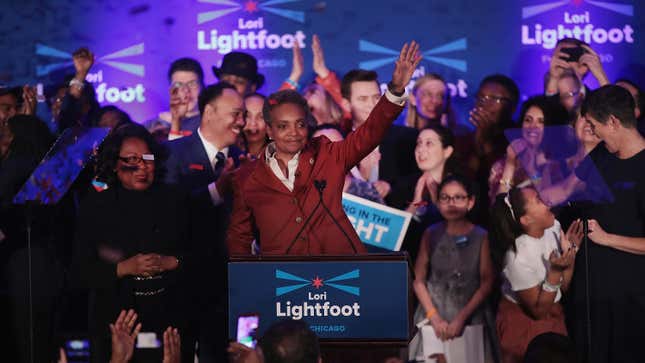

On Tuesday night, former federal prosecutor Lori Lightfoot was elected mayor of Chicago in a runoff election, winning handily over her opponent Toni Preckwinkle. As many journalists covering the election have noted, both the election itself and Lightfoot’s victory marked some important firsts: the first race in which it was guaranteed that a black woman would be the next leader of one of the nation’s largest cities, and with Lightfoot’s win, the first time an openly lesbian woman will be the city’s mayor.
The historic nature of Lightfoot’s win has been the central frame through which the story has been covered across much of the political press, and of course her win is laudable and historic—especially for a city in which, as the historian and activist Barbara Ransby wrote in the Nation, politics have long been dominated by “white, male-led machine politicians” who “have worked to keep outsiders at bay, while trying to keep black voters and black politicians in check.”
But what is also notable is the fact that many progressive activists and police reform organizers in Chicago have responded to her win—much as they responded to her campaign—primarily with concern about her record on law enforcement and accountability. This focus stands apart from from the press narrative around her identity as a black queer woman, and mirrors a dynamic that is also playing out in the presidential campaign of Kamala Harris in particular and, more broadly, a uniquely diverse Democratic primary field.
We are in a moment in time when various organized movements—from Black Lives Matter to the call to end deportations and the campaign for Medicare for All—are making clear demands of our elected officials and those who run for office, and more people are doing the work to hold public officials accountable. In response, candidates and politicians are embracing increasingly progressive platforms, even if their records tell a more complicated story.
-

-

-

-

-

-

-

-

-

-

-

-

-

-

-

-

-

-

-

-

-

-

-

-

-

-

-

-

-

-

-

-

-

-

-

-

-

-

-

-








































